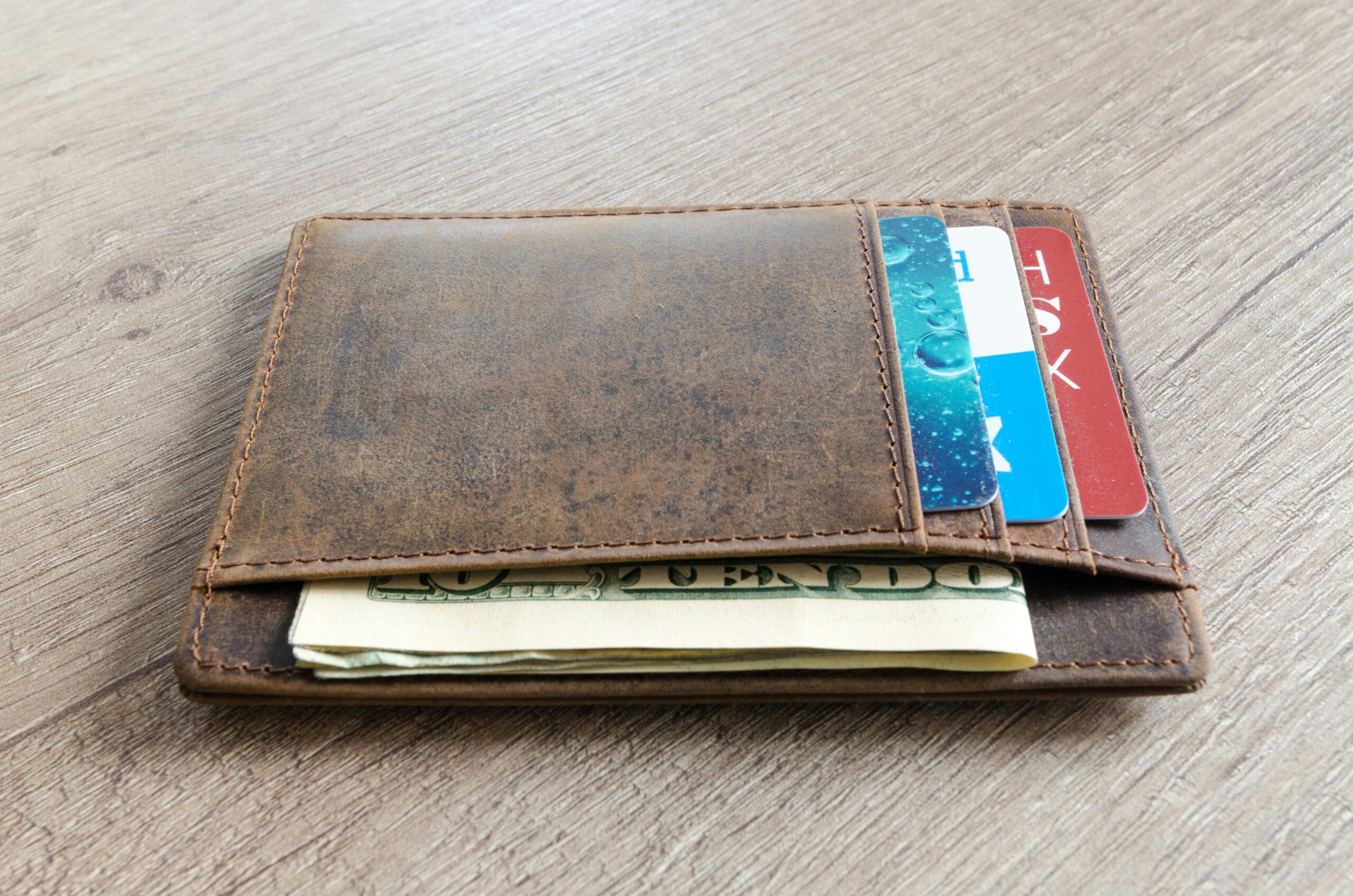
- Insurance
-
-
Most Popular
-
-
- Investing
-
-
Most Popular
-
Best Of
-
-
- Banking
-
-
Best of
-
Banking Reviews
-
Explore More
-
-
-
- Loans
-
-
Most Popular
-
Explore more
-
-
- Credit Cards
- Reviews
- Making Money
Which Is Not a Positive Reason for Using a Credit Card to Finance Purchases? Find Out Here
Think twice before using a credit card to finance purchases. While they offer benefits, there are significant downsides that you must consider. This article highlights which is not a positive reason for using a credit card to finance purchases, touching on important issues that could affect your financial health.
Written by:
Key Takeaways
- High interest rates on credit cards can lead to mounting debt if not managed carefully, overshadowing any rewards or benefits earned.
- Accumulating credit card debt can have significant psychological and financial impacts, making it difficult to achieve long-term financial goals such as home ownership or retirement.
- Credit cards can introduce additional costs, including late fees and foreign transaction fees, which can quickly add up and complicate budgeting and financial planning.
Table of Contents
The ubiquity of credit cards in today’s market is no coincidence. They form an integral part of the modern consumer’s financial arsenal, providing a way to finance purchases without the immediate need for cash. Whether you’re booking a last-minute flight or picking up the tab at a fancy restaurant, credit cards offer a level of purchase protection that cash simply cannot match, along with the convenience of widespread acceptance and the potential for valuable rewards.
Imagine the scenario: you’ve made a purchase that earns you points towards your next vacation, or perhaps you’ve snagged a hefty cash-back bonus on your weekly groceries. When used wisely, and with the balance paid in full each month, credit cards can indeed act as a low-cost loan, helping to build a positive payment history and improve credit scores. These perks underscore the potential benefits of credit card use when managed correctly.
Nonetheless, the less appealing aspects of this financial tool often remain unexplored. While the benefits are enticing, they can also veil the less positive reasons for using credit cards to finance purchases. As we delve deeper into this topic, keep in mind that every story has two sides, and the narrative of credit card use is no exception. It’s time to flip the page and explore the darker chapters that could impact your financial well-being.
High Interest Rates
Few other lending products can match the flexibility that credit cards offer. They allow you to:
- Finance purchases, often with the added bonus of the opportunity to earn rewards such as points, cash back, or travel benefits
- Enjoy the convenience of not having to carry cash
- Track your spending through detailed statements
However, this is where the allure of credit cards, provided by the card issuer, begins to reveal its thorns.
The thorn in question is interest – a simple word that carries significant weight. Credit card companies often charge high interest rates, and if you’re not diligent in paying off your balance each month, these rates can transform your credit card debt into a growing monster that threatens to devour your financial stability. Secured credit cards might offer a way to build credit with a lower credit limit, but they aren’t immune to the pitfalls of high interest charges.
Additionally, the advantage of readily available credit that credit cards provide can also be a potential pitfall. Having access to a credit limit beyond your means to pay can lead to a habit of overspending, and before you know it, the interest charges pile up, overshadowing any rewards or benefits you might have earned. Many cardholders can attest to the fact that what initially seemed like a manageable balance can quickly spiral out of control, leading to a desperate search for a way out of mounting debt.
Risk of Accumulating Credit Card Debt

Consider this scenario: you receive your credit card statement, and the balance is higher than expected. You make the minimum payment, telling yourself that you’ll catch up next month. But as the cycle repeats, the balance grows, and so does your stress. This is the risk of accumulating credit card debt – a burden that can sneak up on you and restrict your ability to save for the future. This is a familiar story where individuals find themselves trapped in the cycle of credit card debt.
It’s not just about the numbers on the statement; it’s the psychological toll that high levels of debt can take. The anxiety that comes with mounting bills can be overwhelming, and the stress can bleed into every aspect of your life. When your financial resources are tied up in debt, the dreams of home ownership or a comfortable retirement can seem like mirages in the desert – always on the horizon, but perpetually out of reach.
Credit cards enable this cycle by offering the temptation of a secured credit card with a credit limit that seems like an invitation to spend. But without a responsible credit card strategy, this perceived freedom quickly becomes a prison of debt. And let’s not forget that credit card companies are businesses – they thrive on the interest generated from your borrowing. It’s a stark reminder that when it comes to finance, not all that glitters is gold
Deferred Interest Pitfalls
Have you ever been intrigued by a credit card offer that promised a period without any interest? It’s an attractive proposition: buy now, pay later, without the worry of interest charges. This is the essence of deferred interest plans – a type of financing purchases that can seem like a lifeline for your wallet. However, what’s often hidden in the fine print is a trap waiting to snap shut.
The disadvantages of deferred interest are not always immediately apparent. If you fail to pay off the entire balance before the promotional period ends, you could find yourself on the hook for all the interest that has been accumulating in the background – often at rates that can soar to 30% or more. It’s like running a race where the finish line suddenly moves further away, and the cost of not crossing it in time can be staggering.
These pitfalls are not just theoretical; they are a reality for many consumers, particularly those who:
- make only the minimum payments and don’t realize that interest has been accruing from day one
- are tempted to extend their budgets, especially during holiday seasons
- don’t realize that the aftermath can leave a financial hangover that lasts well into the new year
It’s a sobering reminder that some deals offered by rental car companies are too good to be true.
Potential Damage to Credit Scores
Your credit score, a numerical representation of your financial reliability, can either unlock new opportunities or hinder them. It’s a delicate ecosystem, and carrying high balances on credit cards can be the equivalent of an oil spill in the ocean of your credit history. Just as experts recommend keeping credit utilization below 25 percent to maintain a healthy score, they also warn about the dangers of letting that rate climb.
The scenario is all too familiar: you spend without restraint, confident that you’ll pay it off eventually. But as the balance lingers, your credit utilization ratio ticks upward, and your credit score begins to wilt under the pressure. What started as a convenience – a way to finance purchases and build credit – can quickly become a handicap, limiting your ability to secure loans or negotiate favorable terms in the future.
The potential harm to your credit score isn’t merely a numerical indication; it also mirrors your overall financial health. It can affect where you live, the car you drive, and even the job you hold. And while it’s possible to recover from a damaged credit score, the journey is often long and fraught with challenges. It’s a cautionary tale that underscores the importance of using credit not just responsibly, but strategically.
Fees and Charges
Despite their convenience, credit cards carry additional costs that go beyond the purchases you make. The array of fees can sneak up on unsuspecting cardholders and add a hefty sum to the overall cost of using credit. Some common fees to be aware of include:
- Late fees
- Foreign transaction fees
- Balance transfer fees
- Annual fees
It’s a bit like dining at a fine restaurant only to discover hidden charges that sour the experience.
Late fees are particularly nefarious, as they not only add to your debt but can also hurt your credit score, further complicating your financial situation. And while some fees, like:
- foreign transaction fees
- ATM fees
- annual fees
- balance transfer fees
- cash advance fees
may seem small on an individual basis, they can accumulate quickly, especially if you’re a frequent traveler or make regular purchases from international merchants.
The issue isn’t merely the additional dollars these fees represent, but the underlying principle. Credit cards offer the illusion of seamless access to funds, but it’s a facade that can crumble under the weight of these additional charges. To avoid them, you must navigate the terms of your credit agreement with the precision of a tightrope walker – a balancing act that requires constant vigilance and discipline, especially when it comes to balance transfers.
Negative Impact on Budgeting
Budgeting could be compared to charting a path for your financial journey. However, the introduction of credit cards can blur this route. Untethered from the realities of your bank account, credit cards can distort your sense of spending, enticing you to venture beyond your means. It’s a scenario that can lead to a treacherous path, as the disconnect between spending and actual cash flow creates a mirage of financial freedom.
This illusion is only strengthened by the delay in payment that credit cards offer. With bills typically due weeks after the billing cycle, it’s easy to fall into the trap of using next month’s income to cover current expenses. The result? A complicated tangle of numbers that can make even the most meticulous budgeter’s head spin. Credit cards introduce a layer of complexity to managing your expenses, demanding a level of foresight and restraint that not all are prepared to exercise. One way to alleviate this issue is by utilizing statement credits to offset some of the costs.
Furthermore, the variable nature of credit card payments – fluctuating with the balance and interest rates – adds an unpredictable element to budgeting that fixed loans do not. The challenge lies in adapting your spending habits to accommodate this variability, ensuring that your budget remains a reliable guide rather than a work of fiction. It’s a delicate balance, one that requires a keen eye and a disciplined hand.
Limited Consumer Protections vs. Other Financing Options
Consumers often evaluate the protections provided by different financing options when making purchases. Credit cards boast a variety of consumer protections, from fraud protection to purchase protection, providing a sense of security in the face of unauthorized charges or damaged goods. These protections can be particularly reassuring when traveling, as they offer a safety net in unfamiliar territories.
However, it’s important to consider that credit cards may not always offer the same level of protection as other lending products like personal loans. While personal loans provide fixed terms and payments, aiding in budgeting and financial planning, credit cards can lack this predictability. Moreover, credit cards often entice with rewards programs or introductory periods with 0% interest, features not typically found with personal loans, but these can come with hidden catches.
While the protections and benefits of credit cards are significant, it’s crucial to be aware of their limitations. The Credit CARD Act of 2009 brought significant added consumer protections against unexpected interest rate hikes, yet deferred interest stands as a notable exception. It’s a reminder that while credit cards offer convenience and perks, they must be handled with care to truly serve the consumer’s best interests.
Summary
As we draw this exploration to a close, it’s clear that credit cards can be both a boon and a burden. They offer the convenience of financing purchases with the potential to earn rewards and build credit. However, the temptations they present – from high interest rates to the risk of accumulating debt, from deferred interest pitfalls to potential damage to credit scores, and from various fees to budgeting complexities – can undermine the very benefits they purport to provide.
Navigating the world of credit requires a careful balancing act, a keen understanding of the terms and conditions, and a steadfast commitment to responsible usage. It’s about recognizing the potential pitfalls and avoiding the traps that can ensnare the unwary. By exercising discipline and maintaining a clear perspective on your financial goals, you can harness the advantages of credit cards without succumbing to their drawbacks.
Let this post serve as your compass in the financial landscape, guiding you to use credit wisely and with foresight. Remember, the power of credit is in your hands – wield it with wisdom, and you’ll soar on the wings of financial freedom, rather than falling into the abyss of debt.
Quick Questions
To maintain a good credit score, it’s ideal to keep your credit utilization below 25 percent. This helps optimize your credit score.
Yes, making only the minimum payments can lead to a cycle of debt due to accumulating interest charges and the temptation to overspend. It’s essential to pay more than the minimum to avoid accumulating debt.
Yes, it’s important to watch out for potential hidden fees with credit cards, such as late fees, foreign transaction fees, balance transfer fees, and annual fees. These fees can significantly increase the cost of using credit.
Carrying a balance on your credit card can complicate budgeting by making credit card payments and bank balance disconnected. It might lead to variable credit card payments affecting budgeting.
Be aware that deferred interest credit card offers can lead to high interest charges if the balance isn’t paid off before the end of the promotional period, sometimes as high as 30% or more. Be sure to understand the terms and deadlines before signing up for such offers.

Join the MoneyMash community!
Sign up to get the latest personal finance news.
© 2025 MoneyMash an Element Road, LLC Company.
MoneyMash is an independent, advertiser-supported site. We may receive compensation when you click to apply for some products using the links that you find on our website. Opinions presented on our website are those of MoneyMash or our team of writers and reviewers who post their own opinions. For more information, please read the full disclosure.
